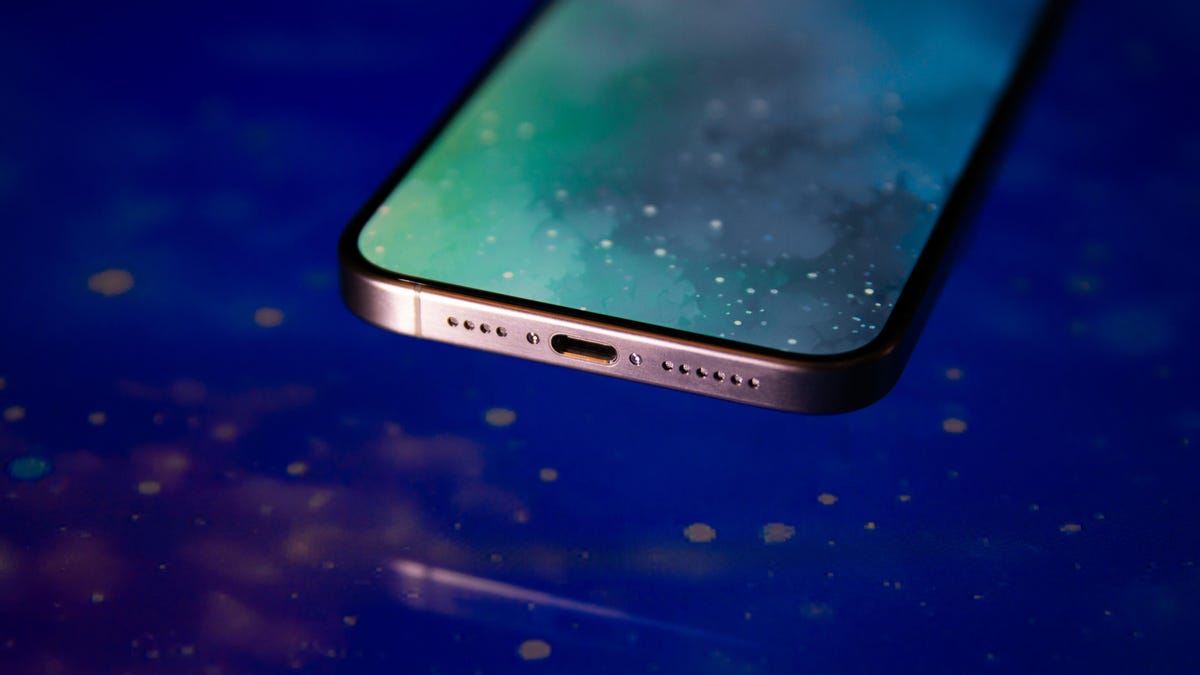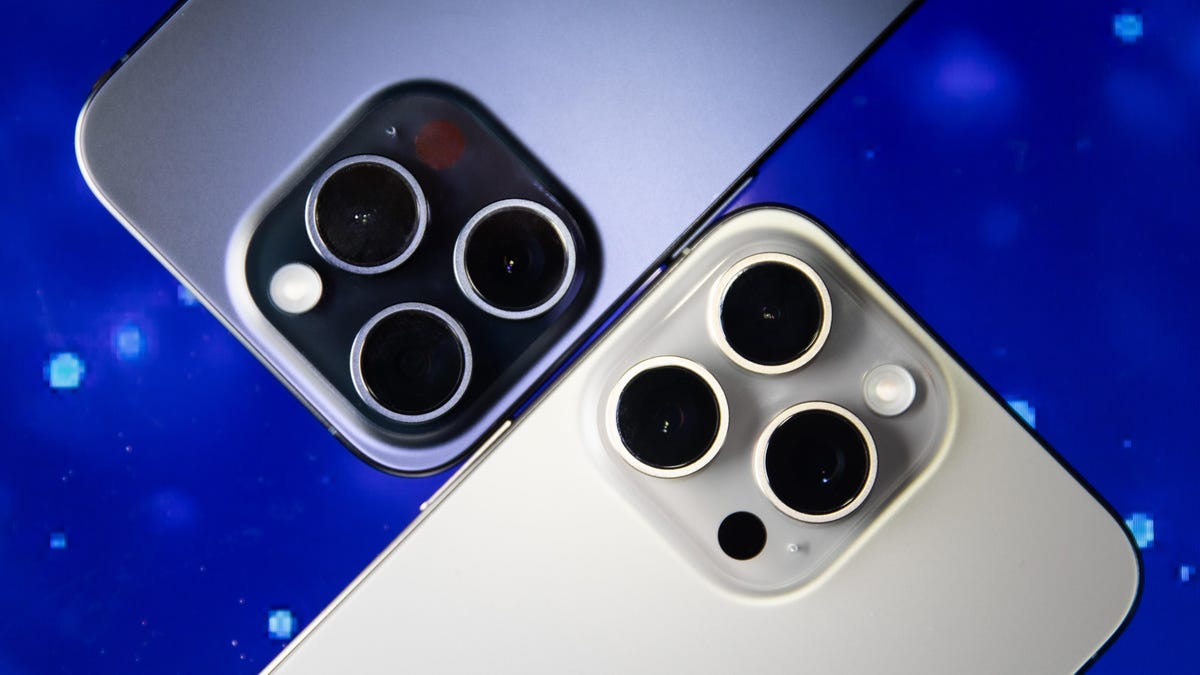Recent updates to some third-party iOS 17 apps, like Instagram and Uber, also contribute to the issue, Apple tells CNET. Here's how to keep your phone cool while a fix is in the works.
Widespread complaints about overheating of the new iPhone 15 Pro and Pro Max can be traced to several factors, including a software bug in iOS 17, Apple told CNET on Saturday.
The company said the new phones' titanium frame and aluminum substructure aren't contributing to the issue, and that they dissipate heat better than the stainless steel used in prior Pro models.
Days after the iPhone 15 series went on sale, people started to share stories about how their new phones overheated or felt excessively hot. Some users couldn't comfortably hold their phone. Others shared pictures of infrared thermometers showing the temperature of their iPhone hitting more than 80 degrees Fahrenheit.
While spending time with the phones for my iPhone 15 Pro and Pro Max review, I didn't have trouble with either one overheating. The 15 Pro Max did become noticeably hot after I used my MacBook Pro's 140W power adapter to charge it. It also got quite warm after I played Resident Evil Village for 30 minutes.
"We have identified a few conditions which can cause iPhone to run warmer than expected," Apple said in a statement to CNET. "The device may feel warmer during the first few days after setting up or restoring the device because of increased background activity. We have also found a bug in iOS 17 that is impacting some users and will be addressed in a software update. Another issue involves some recent updates to third-party apps that are causing them to overload the system. We're working with these app developers on fixes that are in the process of rolling out."
Tech reviewer Faruk Korkmaz published a video earlier this week documenting his iPhone 15 Pro Max's temperature climbing to 98 degrees within minutes after he opened the Instagram app. The same thing occurred on his iPhone 14 Pro Max running iOS 17.
Apple explained that recent updates to some third-party apps on iOS 17, like Instagram, Asphalt 9 and Uber, overload the A17 Pro chip's CPU, causing the iPhone to get warmer than normal. The company is working with third-party developers to implement fixes. As a result, Instagram released an updated version of its app on Sept. 27.
Neither Instagram, Uber nor Asphalt 9 developer Gameloft immediately responded to requests for comment.
There's no word when the software update that addresses the iOS 17 bug will come out, but Apple did explain that the fix won't reduce the iPhone's performance.
In terms of charging, Apple said the 15 Pro and Pro Max support any USB-C adapter that's compliant with the USB-C standard, including USB Power Delivery. The company said the iPhone regulates itself to cap charging to a max 27W and that if you're using a 20W or higher charger, the phone can temporarily get warmer as a result.

Some people have noticed the iPhone 15 Pro and Pro Max getting uncomfortably hot while it charges.
James Martin/CNET
Apple's support page notes that the iPhone may feel warm when you first set it up, restore it from a backup, or wirelessly charge it. That's been my experience with a number of previous iPhone models and Android phones.
If you have an iPhone 15 Pro or Pro Max and are experiencing overheating, there are a few things you can try until Apple releases the iOS 17 update.
Turn on Low Power Mode from the Control Center or in the Battery section of the Settings app. This will kill any background tasks, temporarily limit the display's refresh rate to 60Hz and reduce the brightness. Don't keep your phone in direct sunlight or in an extremely hot environment for prolonged periods. And if, like Korkmaz, you suspect an app might be the issue, disable background refresh for that app under the General section in the Settings app.



Recommended Comments
There are no comments to display.
Join the conversation
You can post now and register later. If you have an account, sign in now to post with your account.
Note: Your post will require moderator approval before it will be visible.